How To Run A Pro Studio – The Ultimate Guide
Running a professional studio is a dream to all of us, so how do you get in the door of a pro set up or even run your own facility as a money-making operation? Rob Boffard has the answers… If you make music, and you want to do it for the rest of your life, […]
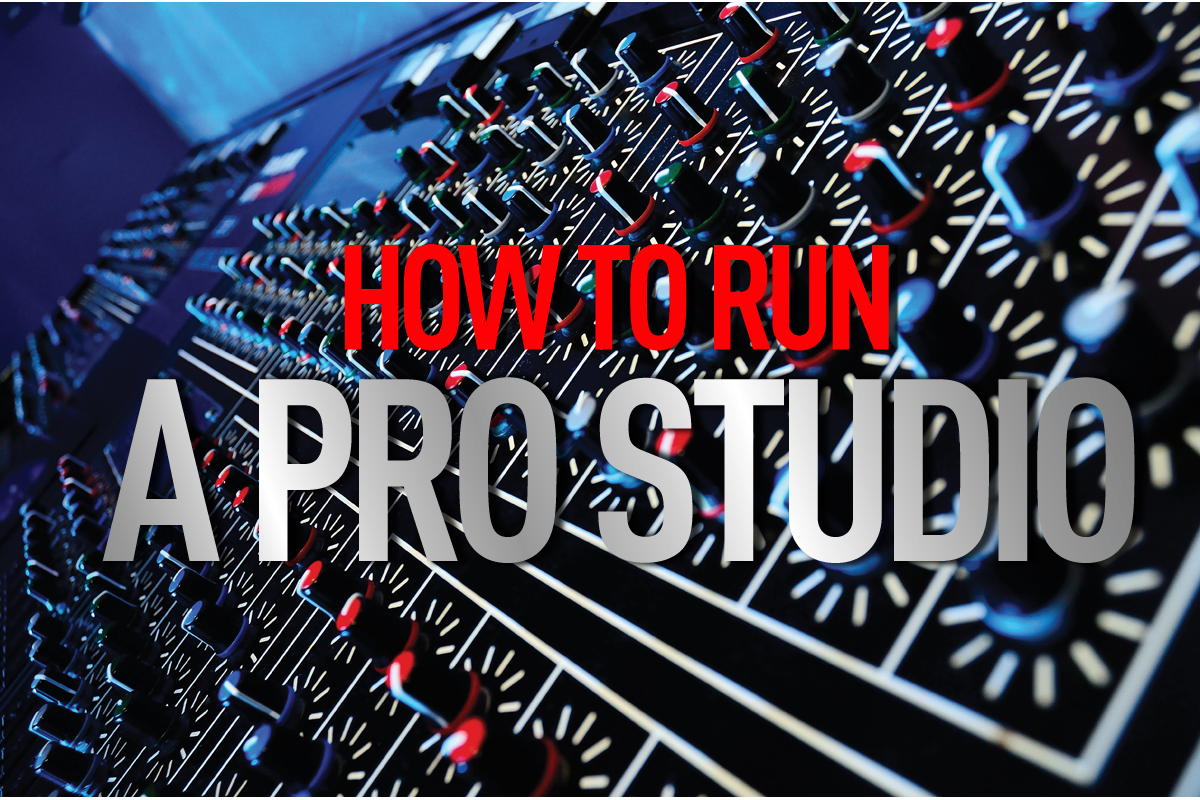
Running a professional studio is a dream to all of us, so how do you get in the door of a pro set up or even run your own facility as a money-making operation? Rob Boffard has the answers…
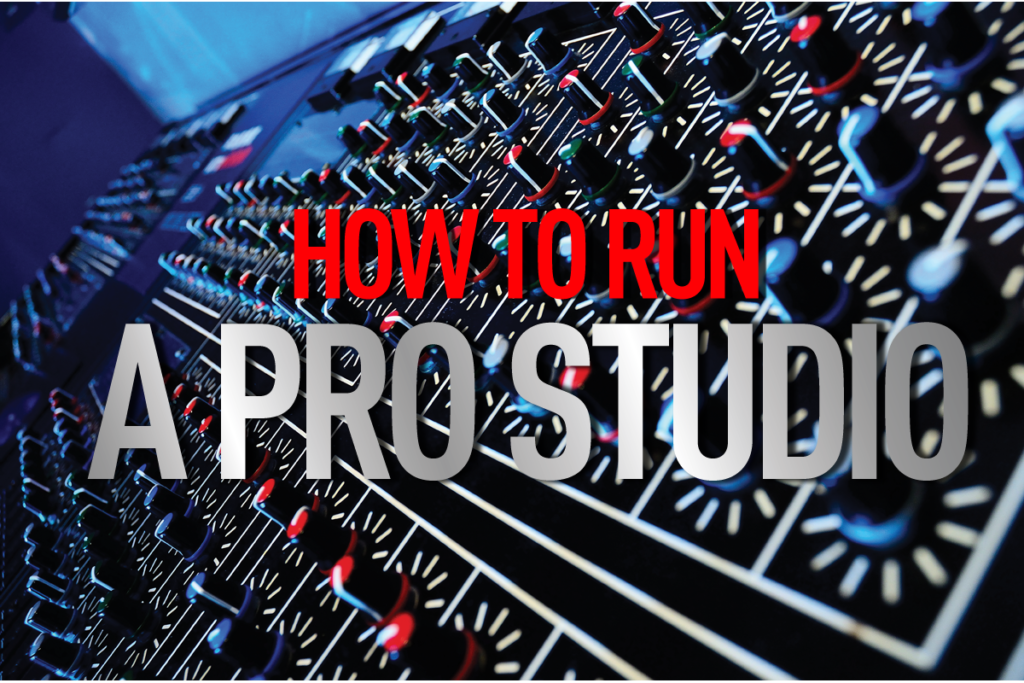
If you make music, and you want to do it for the rest of your life, then you’ll almost certainly be well on your way to making it a career. By now, you’ve got your DAW and your favourite plug-ins, you’ve got some tracks under your belt, and you’ve probably unleashed your music on the world already.
Most producers tend to rely on their own set up, and we’d venture that most who start out don’t have what could be termed professional studios – it’s far more likely that they’ll be operating out of a bedroom somewhere. But for some, this isn’t quite enough, and that’s where the world of pro studios comes in.
For many producers and engineers, a gig working in a pro studio environment is not only a handy source of income, but a great way to learn more about equipment and audio. But how do you get in the door? What kind of jobs are there? And how do you set up your own studio – one that can actually receive paying clients? MusicTech is here to answer those questions, and plenty more, in our guide to working in professional studios.
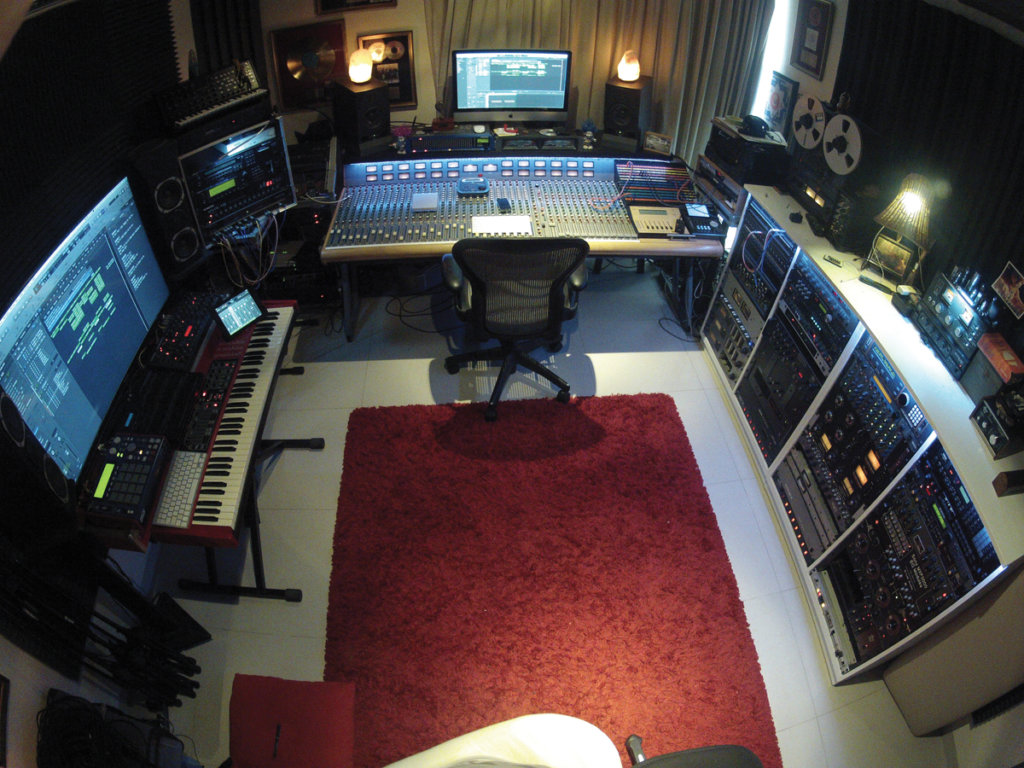
We’ve peppered this feature with some of the studio shots that producers have sent to us as part of our #showoffyourstudio series. Head here to read interviews with each producer/studio owner to see the variety, personalisation and range of difference that’s out there
Jobbing Producer
Let’s tackle existing pro studios first. And by the way, when we say ‘pro studio’, we mean a space that is open to external clients to record in, that pays recording engineers and operates as a business.
Very few studios have their own in-house dedicated producers – as in, someone whose sole purpose it is to make music. These talents tend to be freelance, brought in as and when they’re needed for particular projects. If a studio is lucky enough to have someone with musical talent, they’ll almost always have a dual role, such as an engineer or an equipment technician. Let’s take a closer look at these roles, and how you actually get to take on some of them.
Starting at the bottom of the totem pole, there’s the runner. This is by far the most common way to gain access to a job in a pro studio, and it’s a job you won’t like. You’ll be lucky if you even get to touch the equipment at first. Your job is to make the tea, fetch and carry, send out for burgers for the band members, and keep the place clean.
If you’re trusted, you might get tasked with some of the more boring audio jobs such as bouncing out long sessions, or editing breaths out of takes. The job is poorly paid, if it’s paid at all.
Why would you do this? Because there’s no better way to learn the nuts and bolts of studio work. Being a runner is an established start to this particular career path, and although you’ll hate it, it’s worth doing.
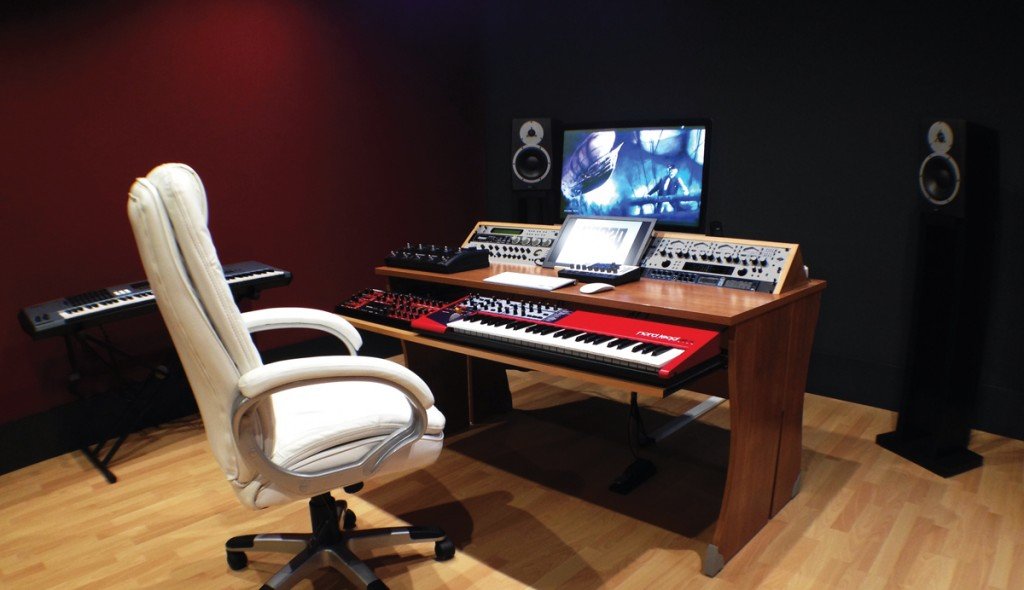
Kooza Production Studio – Read our interview with the owner here
Next up the totem pole are the assistant engineers, sometimes called junior engineers, who work directly with the lead engineer to record the sessions. They’re responsible for making sure the engineer has everything they need, audio-wise. They set up the live room, check cable connections, man the patch bay, write labels below faders, and keep the DAW sessions ordered. Not every studio has the luxury of assistants, but there are still plenty of them around.
The engineer position is probably where you want to be. The runner and the assistants are responsible for the smooth operation of the client’s recording and mix sessions, but the engineer is the one who decides how things sound.
As an engineer, you’re at the controls of the desk. More importantly, you’re in control of a session, and responsible for keeping the client happy with regards to their sound. You have to manage your assistants, have an in-depth knowledge of the studio equipment you’re using, and in general terms, have a rock solid pair of ears.
Even as an engineer, you may be operating under a producer, who could be calling the shots. And of course, there’ll be other people above you: studio managers, HR directors, publicity people (if your studio is big enough), accountants and more. Like anything else, professional studios are a corporate environment, so expect them to function as such from time to time.
Equipment Check
If you’re reading MusicTech, then the chances are you have a pretty good idea about how sound and music-making equipment work. A base knowledge is always good if you’re angling for a job at a pro studio, but you may want to know more about which pieces of equipment are particularly essential.
(This comes with the caveat that if you’re new, and going for a runner position, then you won’t be expected to know as much. For the time being, let’s assume you’ve applied for an assistant producer role, and go from there.)
You need to have an idea of how a mixing desk (or console) works. We’d venture that there isn’t a single pro studio out there that doesn’t still have a good-size console in it, and it’s absolutely essential to know what all the faders and knobs do. This doesn’t mean you have to have an expert knowledge of the inner workings of all consoles ever made – they’re big and expensive, these things, and chances to play around on them are rare. But you will be expected to know the functions of the faders, the EQ section, how a patchbay works, and how sends work.
You can figure most of this out using the digital mixer in your chosen DAW (the one in Reason 8 is an excellent emulation of a desk), and when you land the job, the lead engineer will take you through the ins and outs of your studio’s desk. If he or she has to explain to you how something like EQ works, you may be in the wrong profession.
While we’re talking DAWs, Pro Tools is still the most common in pro studios, so learn how it works. Logic Pro X is another good one to have knowledge on.
It’s not essential to know how outboard gear works as there are so many different kinds – a general understanding of effects and mixing would be useful though. You should also familiarise yourself with mic technique i.e. how to mic a guitar, the different types of mics, and how many to use on a drum kit. One of the most common tests for any new studio jockey starts with the dreaded five words, “Go mic up the drums”…
So how do I get in?
Damn good question. Like any creative industry, competition is tough to get into a studio. There are only so many studios, and as the financial crunch bites harder (and never seems to go away) fewer studios are taking on full-time engineers.
There really are no solid rules here – job markets fluctuate, and the audio industry is no exception. We mentioned the runner position earlier. This is probably one of the easiest ways to get a foot in the door – either as a paid runner, or as an unpaid studio intern. Turnover among runners is high, and studios prize good ones, so they’re always on the lookout for new talent
It’s quite rare to see jobs advertised at this level. The best way to get in is to research the kind of studios you’d like to work in, find out who runs them and approach them directly. As long as you’re polite, the worst they can tell you is no. And you will, by the way, get told “no” quite a lot. Everyone does. Just roll with it.
Let’s look at another scenario. What if you’re a relatively experienced freelance engineer and you’re looking to find a more permanent home? Let’s assume, for argument’s sake, that you don’t have a prior relationship with the studio you’re looking to work at. How do you get them to notice you?
Standard job-hunting principles apply here. It’s not just about a spell-checked CV and a decent interview suit. You’ll need to do as much research as possible, preferably by talking (discreetly) to past clients, as well as engineers who have worked there previously.
One of the best ways in is to present yourself as a solution to a problem they’re having. Perhaps they’re looking to expand their client list, and you have some useful contacts from past work, or maybe they’re looking to branch out into a field you have experience in. If you can identify a problem and present yourself as a solution, you instantly become more valuable. And a killer demo helps, too.
Most jobs come through existing contacts. Jobs open up, engineers are required, and if you’ve taken the time to get to know people at industry events and online, then your name could be mentioned.
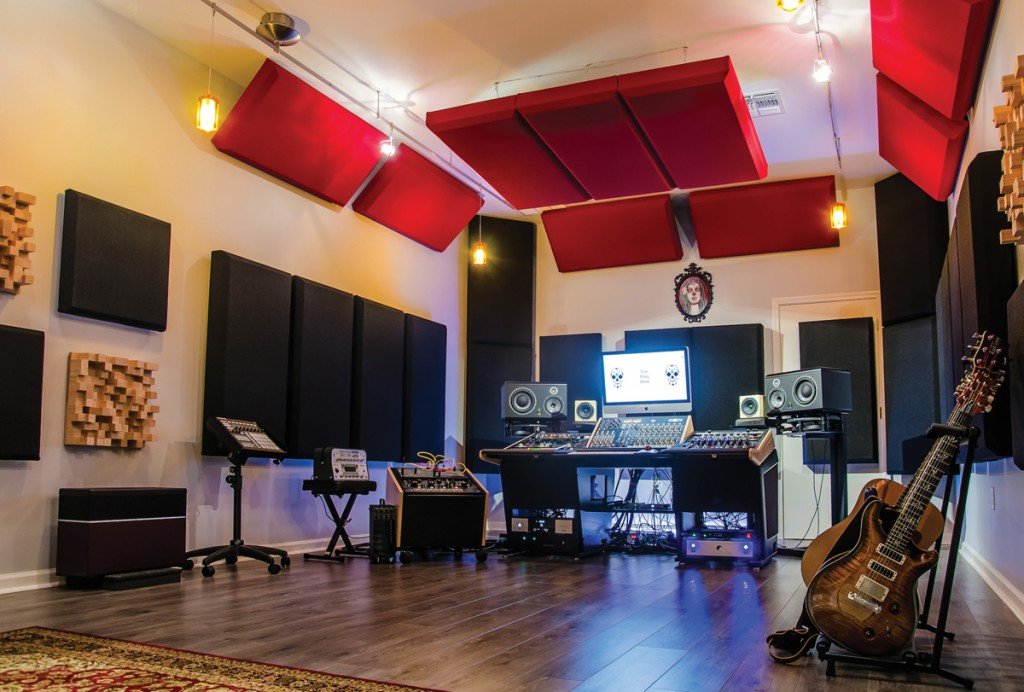
The Freq Zone – Read our interview with it’s owner here
Union Dues
Money is important – obviously – so let’s look at what you’ll be paid, should you be lucky enough to snag one of these positions.
First, though, we need to talk about unions. The main one you’ll need to know about is The Broadcasting, Entertainment, Cinematograph and Theatre Union (BECTU). Their website (www.bectu.org.uk) has a wealth of information on the industry, and they also have a very handy ratecard for freelance engineers. If you’re not a member, it’s well worth becoming one.
The reality, though, is that salaries vary wildly – both depending on the size of the studio, and the location. Skill is also a factor, and an engineer with a reputation is likely to command a higher salary than one without. We’ll use UK salaries as a baseline here – and these come with a caveat that they are very general.
Runners, unsurprisingly, earn very little. Plenty we know have worked at or slightly above minimum wage, while the lucky ones can earn between £15-£18,000 annually. For engineers, that number rises slightly – as well it should, since it’s a reasonably skilled position. Assistant engineers tend to earn within the £22-£30,000 range, depending on what studio they’re at and whether they’re a first or second assistant. A big studio in London, for example, will pay a little more than a tiny outfit in Norwich. Lead engineers can earn considerably more, particularly if they develop that all-important reputation.
Upwards of £35,000 is not uncommon, and it rises even higher if you become proficient in a particular field, such as mastering, or mixing for video games. Progressing to this level can, obviously, take some time, but it’s very achievable.
If you’re a full-time employee, tax will automatically be deducted from your payslip each month. Things are a little more complicated if you’re self-employed however – and remember, even if you’re working at a single place for a full 40-hour-plus week, businesses are allowed to keep you as a contractor for a year before they have to take you on payroll.
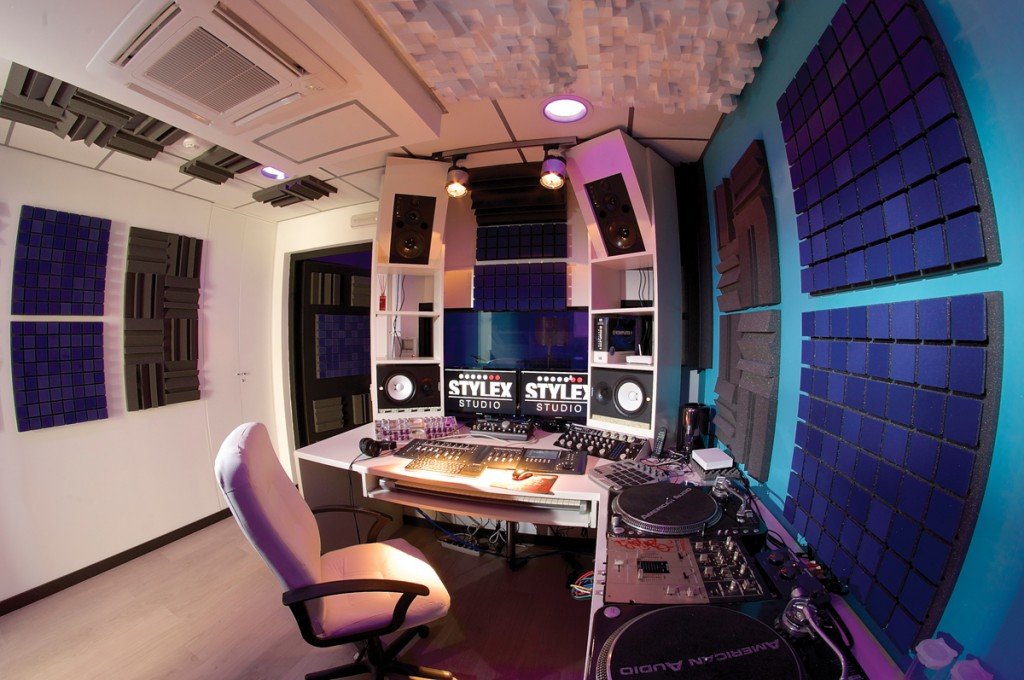
Stylex Studio – Read our interview with the owner here
So make sure your tax is straight. We talk about self-employed tax stuff below.
Remember to negotiate, too – after all, nobody knows your skills better than you, and the big mistake people make, in any industry, is taking the first offer they get without question. If in doubt, go away and think about it for a bit, and try talking to other engineers to find out what they’re earning. Once again, the more research you do, the easier this will all get.
Going Solo
There is, of course, an alternative to all this: doing it on your own. There’s nothing to stop you from setting up your own studio and running things yourself. For many engineers and producers, this is, in fact, preferable to being tied to a single studio, and you can potentially earn much more (if you’re good enough) than you would if you had a full-time gig.
Of course, it’s not quite as simple as just hanging out your shingle. There’s a lot that goes into being freelance, and a lot you need to think about.